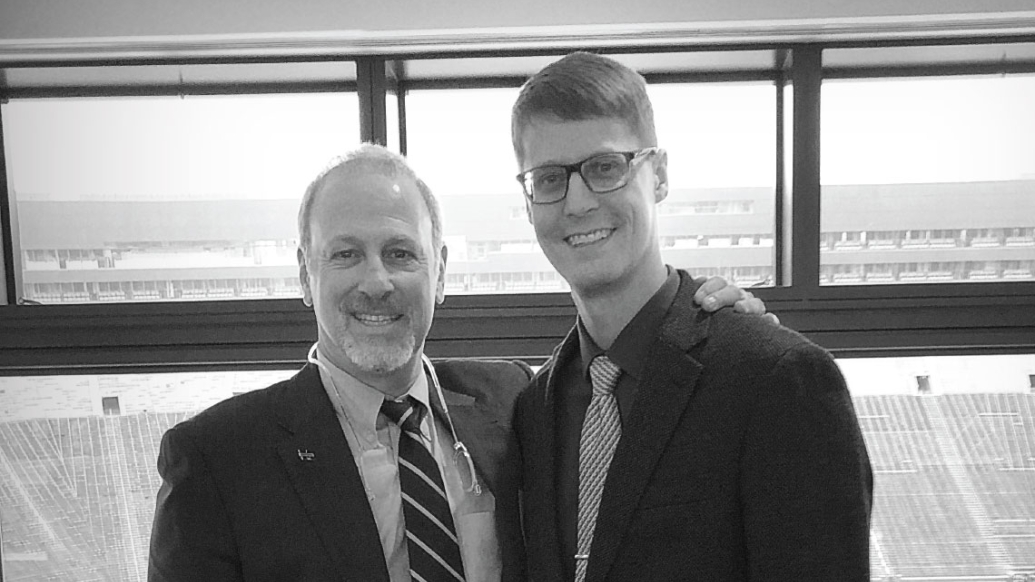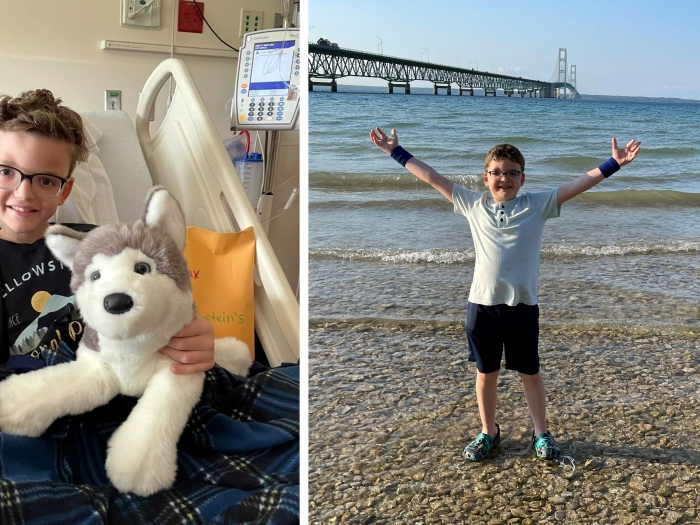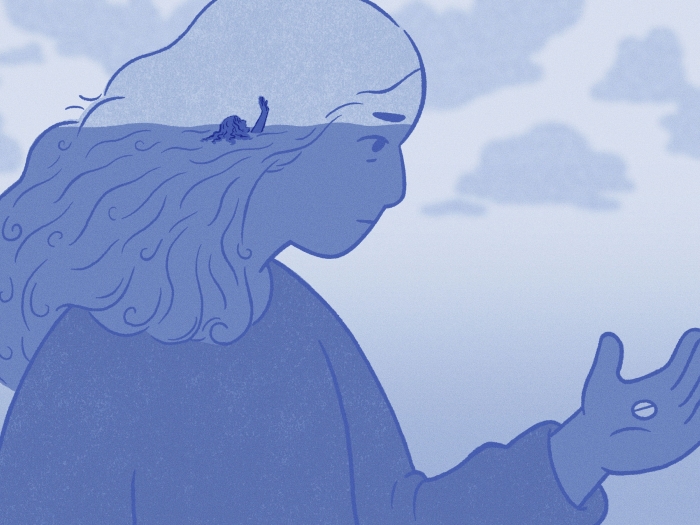
The patient was just a child when he met the physician. Years later, inspired by his own medical journey and treatment, he would follow in that physician's footsteps.
Aaron Thatcher was 5 years old in the summer of 1990 when his mother brought him to an otolaryngologist at U-M. The boy had a history of recurrent respiratory papillomatosis (RRP), and, on this day, his breathing was loud and his voice was extremely hoarse.
Charles Krause, M.D., then the chair of otolaryngology–head and neck surgery, called on one of the newest members of the faculty to help. So new was Brian Wiatrak (M.D. 1984) that he was still setting up the computer in his office — he hadn't even begun to see patients. But he had extensive experience as a resident and fellow, and he was skilled in the field of pediatric otolaryngology.
Wiatrak examined Thatcher and was surprised to find an extensive glottic web with some tiny papillomas growing on and around it. He told the family that surgery needed to be performed promptly to divide the web and remove the papillomas. Wiatrak performed a laser division, and, over the next couple of years, performed more laser procedures. The web did not recur, Thatcher's voice quality improved dramatically, and the papillomas went into remission.
If the story ended here, it would tell of the successful treatment of a physician's first patient. Not bad. But the universe had more in store for Wiatrak and Thatcher.
Fast forward to 2011, 21 years later. Now the director of pediatric otolaryngology at Children's Hospital of Alabama, Wiatrak was invited to speak at a meeting tied to the dedication of the new C.S. Mott Children's Hospital and Von Voigtlander Women's Hospital. A few weeks before the meeting, he received a departmental newsletter from U-M that introduced four new otolaryngology residents. One name stood out: Aaron Thatcher.
It couldn't be, Wiatrak thought. But, open to the possibility that the world had just become smaller and more miraculous, he searched the name on Facebook. He reached out, asking if this was the same Aaron Thatcher he had treated all those years ago.
Thatcher replied: "Yes!"
Aaron Thatcher, M.D. (Residency 2016, Fellowship 2017), had decided at a young age that he would be a doctor. He'd had 21 surgeries by the time he was 6 and, for show-and-tell in school, he had brought endoscopic photographs of his larynx. It became clear to him that the influence of his surgeons and other health care providers was in no small part responsible for his career goal.
Medical school helped him shape his interests; he thought about working with children, perhaps in oncology. But then he caught the surgery bug, the desire to "heal with steel," and there was no looking back. His interest refined further to otolaryngology, which now seems predestined but actually happened through a careful process in which he learned about his personality, strengths, and goals.
When he was accepted as a resident at U-M, he thought of the physician who had treated him when he was 5 and was disappointed to learn that Wiatrak was no longer at Michigan. "I had been wondering about him. But I was just starting out my training. I was nervous to reach out to a busy surgeon like him," Thatcher recalls. "When he found me on Facebook, I was eager to meet him."
And so, more than two decades later, Wiatrak and Thatcher were reunited. They had an emotional, if brief, conversation at the Mott meeting. "I learned that, in some way, Aaron's medical condition and experience with the health care system — and possibly with me — led him to a career in otolaryngology," Wiatrak says. "Fate? Coincidence? Who knows? I cannot name the phenomenon, but it certainly makes me think about the forces that affect people as their lives unfold."
This also would be a fine place to end the story: a successful treatment of a first patient, a reunion, a touch of serendipity. But we aren't quite finished.
The two physicians stayed in contact and sent each other occasional notes. Thatcher reached out to Wiatrak for an opinion on research he was conducting. Thatcher accepted a position at U-M as an assistant professor of otolaryngology–head and neck surgery, now specializing in pediatrics — exactly the job that Wiatrak began in 1990. In fall 2018, the two presented on the same panel at the Michigan Work Society academic meeting. The topic: respiratory papillomas.
Thatcher's own experience, meanwhile, inspires patients who have RRP, as well as their families. "They appreciate seeing someone who has recovered from it," Thatcher says. When he meets patients, he wonders what their futures hold, and if the long arm of coincidence will reach out once again. "I can't help but hope," he says, "that one of them will go on to become an otolaryngologist."





